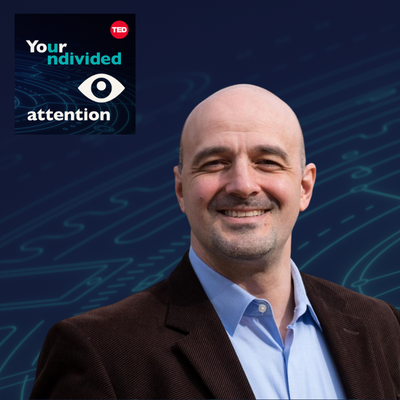Episode 32 | Apr 1, 2021
Come Together Right Now. Guest: Shamil Idriss
Shamil Idriss, CEO of the organization Search for Common Ground, shares the lessons of peacebuilding from his work in Niger, the Balkans, and Rwanda. Technology and social media are creating patterns and pathways of conflict that few people anticipated or even imagined just a decade ago. And we need to act quickly to contain the effects, but we don't have to reinvent the wheel. There are people like Shamil who have been training for years to understand human beings and learn how to help them connect and begin healing processes. These experts can share their insights and help us figure out how to apply them to our new digital habitats. “Peace moves at the speed of trust, and trust can’t be fast-tracked,” says Shamil. Real change is possible, but as he explains, it takes patience, care, and creativity to get there.
Major Takeaways
When we reduce other people to a single “identity” caricature, it’s much harder to connect with them. Storytelling can help people see others through a variety of identity lenses, like being a parent, or struggling with illness. This builds trust and opens lines of communication, allowing us to hear and respect each other even while disagreeing.
Peace moves at the speed of trust and takes years to build. Yet trust can also be destroyed in an instant.
Though dialogue is an important starting point, people establish deeper trust by cooperating with each other to build something meaningful together.
Security, dignity, and hope are the three ingredients of a healthy society. Luckily, all three are public goods, not zero-sum resources – if one group has security, dignity and hope, it doesn't mean another group has to have less.
Security doesn’t come from financial wealth; it’s a psychological construct. When people have what they need to feel safe, they feel secure. Likewise, don’t assume societies like the U.S. are stable just because they’re wealthy – they may be more precarious than you think.
When resolving ingrained, long-standing conflicts, it’s important to take a complex-systems approach. There’s no easy, deterministic sequence of steps to follow. Instead, an iterative approach is needed: Make informed choices but plan to be curious and to constantly adapt to what you encounter.
Other recommended reading
Reimagining Capitalism in a World on Fire
Reimagining Capitalism in a World on Fire is a book by Harvard Business School professor Rebecca M. Henderson. She argues that capitalism is on the verge of destroying the planet and destabilizing society. Yet some psychological norms have blocked us from making interventions that most people, even in the business community, recognize as necessary.
Naija Girls
Naija Girls is a documentary short from Search for Common Ground that describes the friendship between two Nigerian girls, one Christian and one Muslim, who learn to work together despite the violent division between their communities.
The World Happiness Report
The World Happiness Report is an annual report first issued in April 2012 by the United Nations’ Sustainable Development Solutions Network that shows how we can reliably assess quality of life using a variety of subjective measures.
The Peace Innovation Lab
The Peace Innovation Lab is a Stanford Business School lab that researches how to use technology design to encourage prosocial behavior.
“Fearless: The Child Reporter who became Sierra Leone’s Top Investigative Journalist”
“Fearless: The Child Reporter who became Sierra Leone’s Top Investigative Journalist” is a blog post by Search for Common Ground about Michael Sambola, a reporter who broke major national scandals as a teenager.


